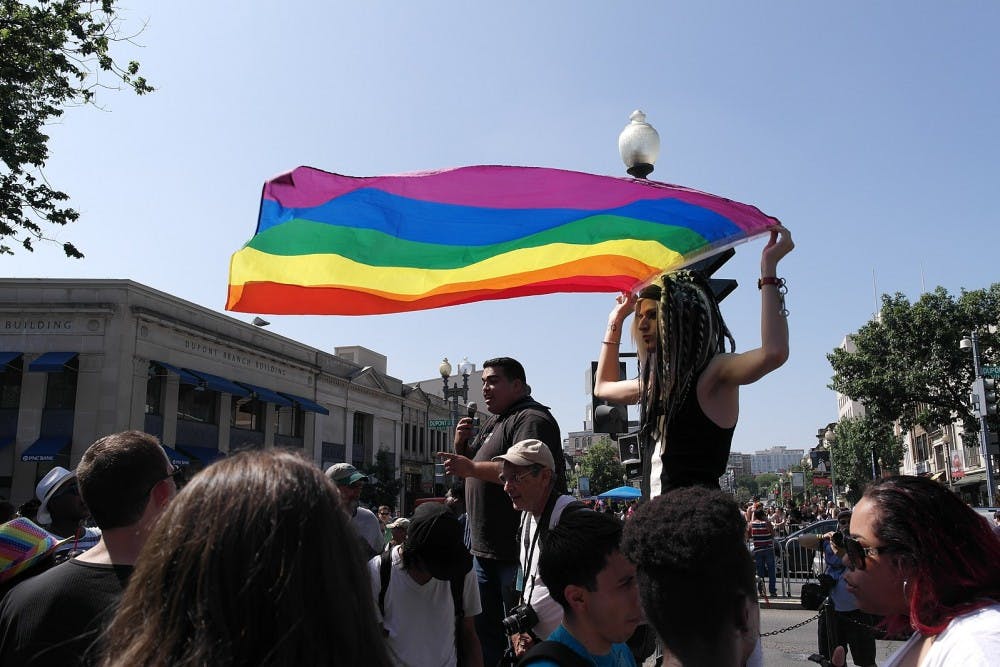In the midst of controversy surrounding various state abortion legislation, the House of Representatives passed a groundbreaking bill to protect the rights of LGBTQ individuals. Specifically, the “Equality Act” would expand protections laid out in the Civil Rights Act of 1964 to “include sexual orientation and gender identity as protected characteristics.” Most notably, this would mean that employers, housing officials and public accommodations such as restaurants, cannot discriminate on the basis of someone’s gender identity and/or sexual orientation. Furthermore, the bill explicitly cites conversion therapy as a form of discrimination. Nevertheless, this bill is not expected to pass in the Republican-controlled Senate. While there was some conservative backing of the bill, it passed largely due to House Democrats. Of the 236 representatives that voted in favor of the bill, only eight were Republicans.
Section 2 (a3) of the bill notes that discrimination of this type impedes, “the free flow of commerce.” Therefore, its proponents are justifying the constitutionality of the Equality Act under the Commerce Clause. Though seemingly indirect, supporters of the Equality Act are using the same arguments as those laid out in the landmark case Katzenbach v. McClung, which used the commerce clause to justify the Civil Rights Act of 1964’s ban on racial discrimination in public accomodations. Nevertheless, if the bill were to pass and eventually make it to court, opponents are likely to pose additional constitutional questions.
There is a wide range of criticisms concerning this bill. One congressman claimed that it would “mean the end of women's sports in any meaningful sense," and others argued that it would force women to share private spaces such as restrooms and dressing rooms with men. However, conservative opposition stems mainly from the idea that the Equality Act is an abhorrent infringement on religious liberty. Rep. Ross Spano (R-FL) even said that the bill would, “immediately expose churches, religious schools and universities and faith-based organizations to legal liability for simply following their earnest beliefs.”
Shockingly, this justification is similar to that of segregationists and opponents of the Civil Rights Act. Even reaching as far back as debates regarding slavery, many have argued that civil rights for marginalized groups are incompatible with ideas of religious liberty. Due to the “constitutional weight” that religion holds, appeals to religious liberty are able to limit the scope of civil rights. In fact, in response to a civil rights law banning employment discrimination, Former Virginia Sen. Harry Byrd, a staunch defender of state-enforced segregation, incited biblical language on the Senate floor. His opposition stemmed from passages from Genesis, Leviticus and Matthew, helping him create a religious basis for segregation, thus allowing him to claim that discrimination is justified by religious freedom. Therefore, this religious argument against the civil rights of marginalized groups, whether that be African-Americans or queer persons, is not new. From opposition to racial integration to the Supreme Court’s Masterpiece Cakeshop decision, this idea of religious liberty can halt civil rights. While religious liberty is a foremost right for the American people, it does not serve as an effective justification for the discrimination of others.
Although these arguments may hold significant moral weight amongst conservative legislators, advocacy for federal protections for LGBTQ individuals must continue. The Republicans that voted in favor of the bill applauded its strides to eliminate discrimination against LGBTQ individuals. The congressional debates featured emotional speeches from those who may be affected by the bill, including Rep. Pramila Jayapal (D-Wash.), who spoke about her gender nonconforming child. When those affected have the platform to speak about their own struggles, legislators can be persuaded to make positive change. At this critical time, queer persons and allies must come together to voice their support for the Equality Act as it moves on to the Senate. We must bring light to the struggles that LGBTQ persons face on a daily basis in order for legislators to acknowledge the necessity of this bill.
Representative Jerrold Nadler (D-NY), chairman of the Judiciary Committee, noted that the provisions of this bill serve partly as a response to the Trump administration’s policies regarding LGBTQ individuals, such as banning transgender individuals from serving in the military.
Therefore, not only does this bill serve as an acknowledgement of the hardships that LGBTQ people face on a daily basis, but it aims to protect them in both their public and private lives. As social norms begin to shift to accept LGBTQ individuals into society, tensions regarding this issue will fade. However, homophobia and transphobia are still rampant in American society and protections such as those in the Equality Act are necessary to begin to make our communities safer places for queer persons. The Civil Rights Act of 1964 came during a time when racism was still rampant. Nevertheless, the role of civil rights leaders and advocacy groups was invaluable to the passage of the Civil Rights Act of 1964, despite the toxic race relations at the time. At a time in which the rights of LGBTQ communities are threatened, we must continue to advocate, protest and support movements to pass this landmark piece of legislation.
Victoria McKelvey is a Senior Associate Opinion Editor for The Cavalier Daily. She can be reached at v.mckelvey@cavalierdaily.com.







